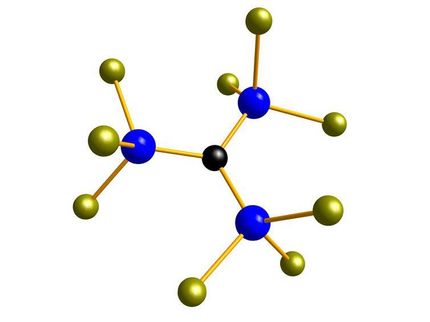Professor Matthias Driess Receives 2011 Wacker Silicone Award
Advertisement
The Munich-based Wacker Group presented its 2011 Wacker Silicone Award including 10,000 euros prize money to Dr. Matthias Drieß, Professor of Organometallic and Inorganic Chemistry at the Technische Universität Berlin. According to Dr. Rudolf Staudigl, President & CEO of Wacker Chemie AG, Prof. Drieß won the award due to his pioneering work on low-valent silicon compounds, which – owing to their isolability and reactivity properties – now constitute promising building blocks in organosilicon chemistry and make it possible, for example, to produce catalysts which do not contain precious metals.
Dr. Rudolf Staudigl, Wacker’s President & CEO, praised this year's award recipient for his outstanding achievements in the field of organosilicon chemistry. “Prof. Drieß’ pioneering work in the field of silicon-phosphorus compounds and silylenes, which represent promising synthetic building blocks in organosilicon chemistry, has been trailblazing,” said Dr. Staudigl.
Prof. Drieß has researched a broad array of topics. His scientific pursuits range from photocatalytic water splitting to innovative silicon compounds. One of his primary fields of research concerns fundamental work on the chemistry of low-valent silicon compounds, such as the silicon analogues of nitrogen-heterocyclic carbenes. His clever modification of the heterocyclic scaffold allowed Prof. Drieß to give silylenes a zwitterionic character. As a result, they show a changed reaction behavior and permit a wide range of reactions with both electrophilic and nucleophilic reagents.
Wacker’s President & CEO characterized the capability of these silylenes to activate poorly reactive bonds of small molecules such as oxygen, nitrous oxide or carbon dioxide as particularly interesting. “This opens the door to utilizing silicon compounds as precious-metal-free catalysts in the future”, Dr. Staudigl said.
Matthias Drieß was born in Eisenach, East Germany in 1961. He studied chemistry at the University of Heidelberg in West Germany. In 1988, he obtained his doctorate in the lab group of Prof. Walter Siebert. After spending one year in Madison, Wisconsin (USA), as a postdoc under the tutelage of Prof. Robert West – who received the WACKER Silicone Award that same year – Prof. Drieß received his habilitation in 1993 with his postdoctoral thesis “Silicon and Phosphorus in Unusual Coordination”. Three years later, he was appointed to the chair of Inorganic Chemistry at the Ruhr-Universität Bochum. Prof. Drieß has been professor of Organometallic and Inorganic Chemistry at the Technical University of Berlin since July 2004.
As spokesman of the “Unifying Concepts in Catalysis” (UniCat) cluster of excellence, Prof. Drieß also devotes himself to the development of efficient catalytic systems and – in the scope of the international “Light2Hydrogen” research project – to photocatalytic water splitting in particular. With respect to nanotechnology, he focuses on organometallic precursors for the manufacture of nanoscale materials intended for use in technologies of tomorrow such as optoelectronics.






























































